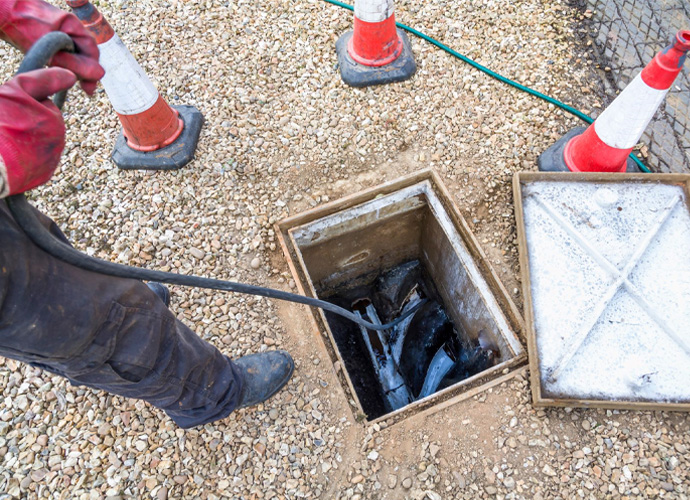It is pretty much a given that property owners will do all they can to look after and quickly fix, if needed, any issues with the structure of a property such as loose roof tiles or a crack in the wall. These are easy to spot though. What a lot of people forget about though, is that they are also responsible for the underground services that run to their properties. Very much out of sight, out of mind. These services are things like Water lines, drains, electricity cables and also gas lines. If we don’t look after these pro-actively issues will only typically come to light when there is a serious problem.

In all honesty there is little that can be done to look after gas and electricity lines and we would not encourage anyone to start interfering with either. There are some simple things that can be done to protect water and drainage services, though, and we will take a look at those here.
Be aware
Know where your underground services are and should you decide to conduct work on your property, such as landscaping, an extension or any other aspect that requires earthworks, make sure the contractors or workers also know where your supplies run.
Insurance
Although this does not actually protect the services, it will give you peace of mind should something happen. Most buildings insurance policies cover for damage to underground services but it is well worth making 100% sure that this is case. Should the worst happen, that you are covered! Make sure you fully understand the terms and conditions of the insurance as not all events are going to be covered. Examples are when a blockage has been caused by negligence such as pouring cooking oil down the drain or flushing baby wipes. In addition, it is possible that gradual and natural wear and tear won’t be covered either.
Don’t flush
One of the main causes of drainage problems is flushing things down sinks or toilets which really should not be flushed. Such things are cooking oils which can solidify, baby wipes, nappies, hair and sanitary protection products. Baby wipes being by far the worst culprits. A good tip to prevent these kinds of blockages is to use drain guards on sinks, showers and baths to collect debris and prevent it getting into the drains.
Inspect
Regular drain surveys will pay dividends. The sooner you detect a potential issue, the sooner it can be resolved without any major problems. Although drain surveys are not perhaps the cheapest and can be inconvenient, the cost of a serious issue will dwarf that. Check gutters for leaves as well and remove them as you don’t want them adding to the potential for blockage. It makes sense to check drains in spring to spot any issues created by falling leaves and other debris over the winter.
Be on the look out
Keep a look out for potential issues which give a clue that something is going wrong. Things like slow draining of sinks or baths, unpleasant odours from drains could indicate a blockage. Discoloured water could indicate that the water supply lines are starting to corrode. Any smell of gas either indoors or outdoors should be reported immediately.
Protect
External water meters are particularly vulnerable to really cold spells and can freeze. You can put insulating foam around them to protect them from all but the worst winters.
You can’t protect all the services that are underground, but certainly your water and drainage system can be regularly checked, maintained and protected. Taking the precautionary measures in this article will pay dividends in the long run.






